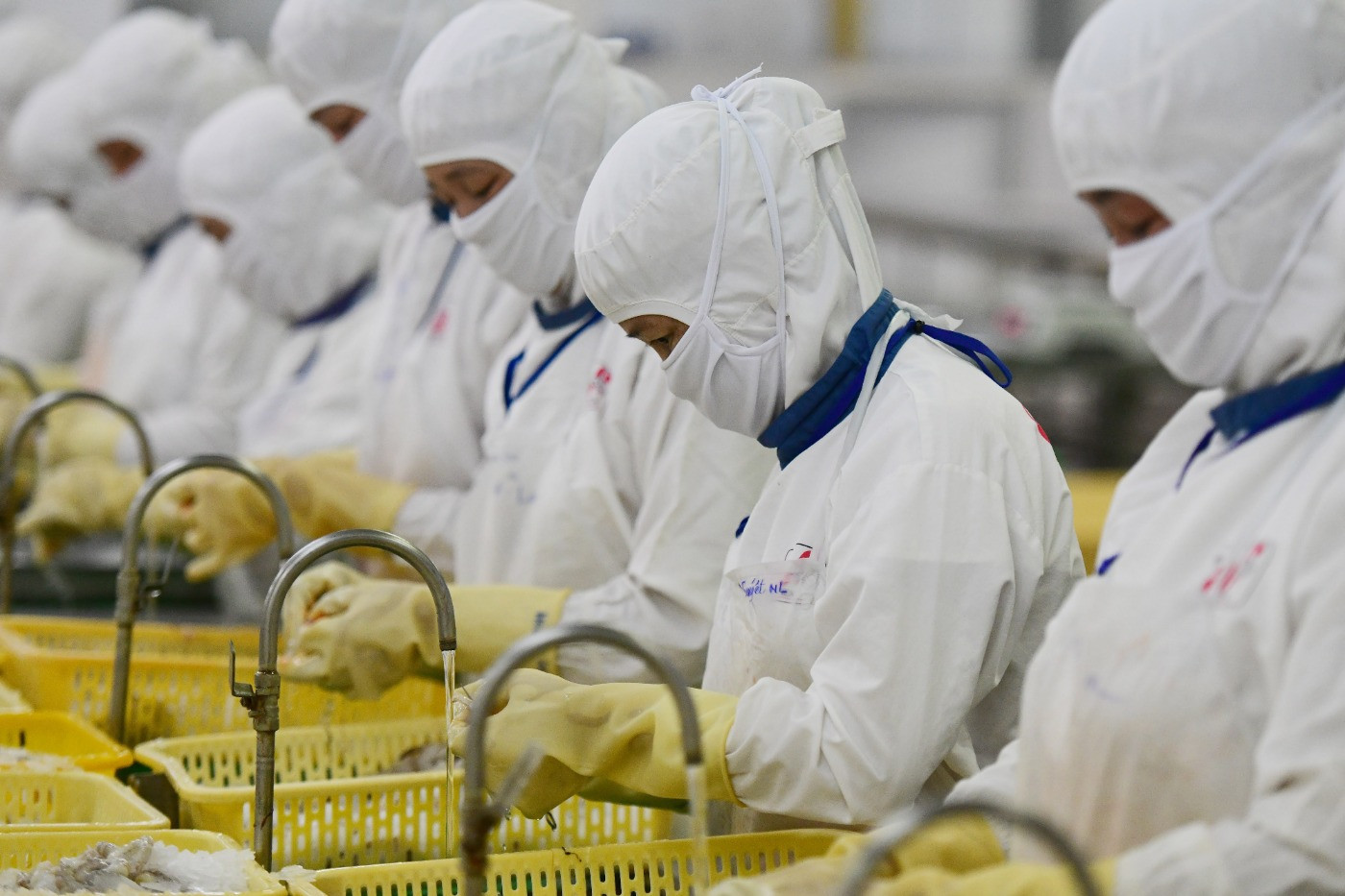
Minister of Industry and Trade Nguyen Hong Dien said Vietnam is a signatory of many bilateral and multinational trade agreements to facilitate trade and promote domestic production.
However, new barriers have been installed, especially technical ones, such as requirements on green energy and low-carbon production.
“The new policies sound very humanitarian, but they are new rules of the game in an unequal race. Developed countries are far ahead and have much better conditions than we do,” Dien said.
A report found that the turnover decreased by 11.8 percent in the first three months of 2023 to $79.3 billion (import turnover fell to $74.5 billion, down 15.4 percent). The import-export turnover decreases were seen in both the domestic and foreign-invested sectors.
In terms of export markets, exports to the Americas brought turnover of $24.6 billion, down 19.4 percent, Europe to $12.4 billion, down 9.7 percent, Africa down 11.2 percent and Oceania down 3.7 percent.
Meanwhile, export turnover to the Asian market was $38.7 billion, down 7.3 percent compared with the same period last year.
In terms of exports, industrial products brought turnover of $67.8 billion, down 12.7 percent, while farm and seafood produce was $6.8 billion, down 7.8 percent, and fuel and minerals $1.03 billion, down 1.6 percent.
Some key exports saw export turnover decrease in the first quarter of the year, including phones and phone accessories ($13.4 billion, down 12.2 percent); electronics, computers and computer accessories ($12 billion, down 9.3 percent); garments ($7.2 billion, down 17.7 percent); and yarn (941 million, down 35 percent).
Textile and garment is a key industry in Vietnam which brings billions of dollars worth of export turnover every year. However, it is facing challenges because of market decline, especially in major markets such as the EU and US.
Deputy chair of the Vietnam Textile and Apparel Association (Vitas) Tran Nhu Tung said in the short term, it is necessary to strengthen trade promotion and working sessions between Vietnam and other countries to expand export markets through trade counselors, with a focus on countries with which Vietnam has bilateral free trade agreements (FTAs).
As for the seafood sector, Nguyen Hoai Nam, deputy secretary of the Vietnam Association of Seafood Exporters and Producers (VASEP), said export turnover dropped by 27.5 percent, equal to the decrease in the most severe Covid-19 period.
Nam called on the government to launch a preferential credit package of VND10 trillion to allow seafood companies to collect materials from farmers in order to maintain production.
Tam An